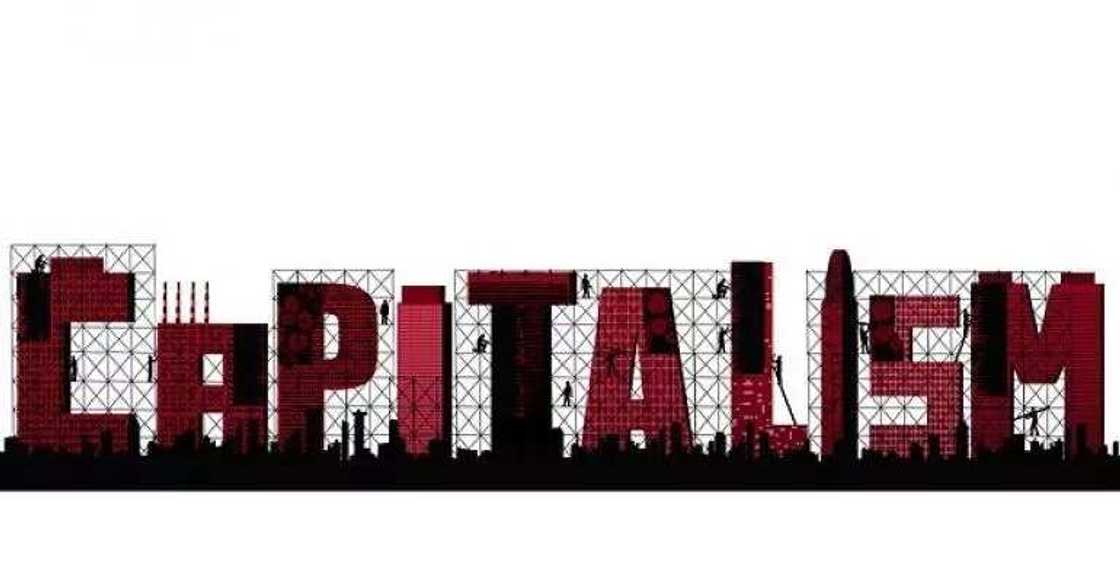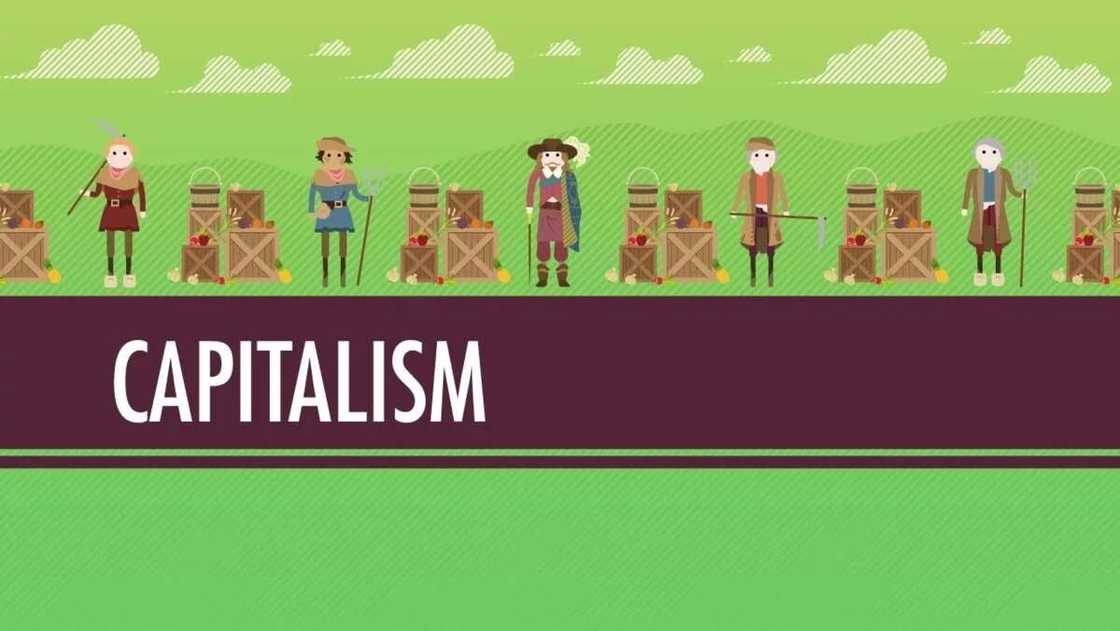5 Major Features of Capitalism
Over the course of the years, there have been a lot of debates about which of the economic systems is best for a country. People tried to figure out which is most profitable. There are three main types of economic systems: Capitalism, Socialism, and mixed economy. Different countries have tried the different types to see which one best fits their economic process and growth. Why do most of them prefer capitalism? What are the features of capitalism?

But before we start, there are two other alternatives which are socialism and mixed economy. Socialism is the system in which the Government has majority of the say on how things are run in the country. The production and distribution of goods and services are done entirely by the government.
Mixed economy is not far off. This is the system that combines both public and state ownership.
This article explains capitalism in details, its features, merits and demerits.
What is Capitalism?
Capitalism, or free market as it is often called, is a system of private ownership. In layman’s term, it means that the economy of the country is in the hands of just a select few - “The Rich”. It is one of the oldest types of economy dating back to the 18th century. It is an economy in which the companies, resources, materials, machineries, production are handled by the rich people who are referred to as the capitalists.
In a way, the government and the entire country in hinged on the success of these capitalists.
Features of Capitalism

READ ALSO: Nature and importance of economics in our life
The right to Private Property
One of the main features of capitalism is the ability to own private property. The owner of the property has the sole right to do what he wishes with it. It can be leased or sold according to the preference of the owner. The property can also be inherited by the heir(s) of the owner without any interference from the government. This right is the first and foremost feature of capitalism.
Profit Motive
This is the core of capitalism. In fact the economy starts and ends with this motive. Every economy wants to make profit and this guides whatever decision that is being made.
Mechanism of Price
This is the hidden hand of the market operating in competitive conditions. It allocates scarce resources among competing users by rationing price when demand outstrips supply. Price mechanism determines what the producers make, how much, when and also where they produce.
Perfect Competition
Completion is needed for a free market economy. It allows for different people who, by their individual actions, cannot influence market decision so they come together and establish the basis of marketing. The more the competition, the more the variety of consumers and each producer fights to stay relevant in the market economy.
Sovereignty of the Consumer
The consumer has the upper hand in a free market economy. This means that the entire production lies with the decision of the consumer. It is what the consumer wants or demands for that precipitate the production of goods and services. The consumer is known as the ultimate king.
Due to the above mentioned features, capitalism comes with its own advantages:
- Goods are available at a cheaper price.
- Resources are utilized.
- Production is encouraged in different forms.
- Invention and innovation becomes the key to maintaining audience and growth.
In conclusion, capitalism might not be the best economic system, but it has produce impressive results in majority of countries that practice it.
READ ALSO: History of entrepreneurship in Nigeria
Source: Legit.ng


